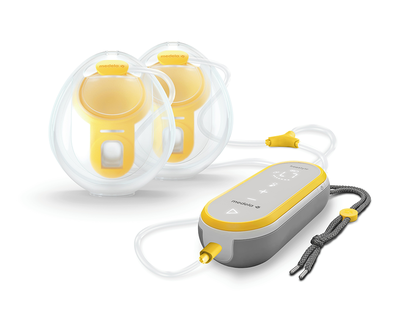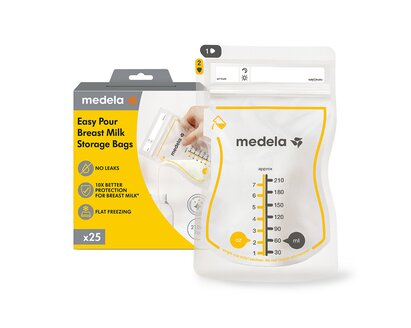1 Victora CG et al. Breastfeeding in the 21st century: epidemiology, mechanisms, and lifelong effect. Lancet. 2016;387(10017):475-490.
2 Bode L et al. It’s alive: microbes and cells in human milk and their potential benefits to mother and infant. Adv Nutr. 2014;5(5):571-573.
3 Ballard O, Marrow AL. Human milk composition: nutrients and bioactive factors. Pediatr Clin North Am. 2013;60(1):49-74.
4 Ladomenou F et al. Protective effect of exclusive breastfeeding against infections during infancy: a prospective study. Arch Dis Child. 2010; 95(12):1004-1008.
5 Vennemann MM et al. Does breastfeeding reduce the risk of sudden infant death syndrome? Pediatrics. 2009;123(3):e406-410.
6 Hassiotou F et al. Maternal and infant infections stimulate a rapid leukocyte response in breastmilk. Clin Transl Immunology. 2013;2(4):e3.
7 Harrison D et al. Breastfeeding for procedural pain in infants beyond the neonatal period. Cochrane Database Syst Rev. 2016;10:CD011248.
8 Johnson TJ et al. Economic benefits and costs of human milk feedings: a strategy to reduce the risk of prematurity-related morbidities in very-low-birth-weight infants. Adv Nutr. 2014;5(2):207-212.
9 Schanler RJ et al. Randomized trial of donor human milk versus preterm formula as substitutes for mothers' own milk in the feeding of extremely premature infants. Pediatrics. 2005;116(2):400-406.
10 Brown A, Harries V. Infant sleep and night feeding patterns during later infancy: association with breastfeeding frequency, daytime complementary food intake, and infant weight. Breastfeed Med. 2015;10(5):246-252.
11 Sánchez CL et al. The possible role of human milk nucleotides as sleep inducers. Nutr Neurosci. 2009;12(1):2-8.
12 Dekaban AS. Changes in brain weights during the span of human life: relation of brain weights to body heights and body weights. Ann Neurol. 1978 4(4):345-356.
13 Deoni SC et al. Breastfeeding and early white matter development: A cross-sectional study. Neuroimage. 2013;82:77-86.
14 Straub N et al. Economic impact of breast-feeding-associated improvements of childhood cognitive development, based on data from the ALSPAC. Br J Nutr. 2016:1-6.
15 Victora CG et al. Association between breastfeeding and intelligence, educational attainment, and income at 30 years of age: a prospective birth cohort study from Brazil. Lancet Glob Health. 2015; 3(4):e199-205.
16 Horta BL, Victora CG. Breastfeeding and adult intelligence – Authors’ reply. Lancet Glob Health. 2015;3(9):e522.
17 Belkind-Gerson J et al. Fatty acids and neurodevelopment. J Pediatr Gastroenterol Nutr. 2008;47 Suppl 1:7-9
18 Heikkilä K et al. Breast feeding and child behaviour in the Millennium Cohort Study. Arch Dis Child. 2011;96(7):635-642.
19 Tharner A et al. Breastfeeding and its relation to maternal sensitivity and infant attachment. J Dev Behav Pediatr. 2012;33(5):396-404.
20 Montgomery SM et al. Breast feeding and resilience against psychosocial stress. Arch Dis Child. 2006;91(12):990-994.
21 Bener A et al. Does prolonged breastfeeding reduce the risk for childhood leukemia and lymphomas? Minerva Pediatr. 2008;60(2):155-161.
22 Singhal A et al. Infant nutrition and stereoacuity at age 4-6 y. Am J Clin Nutr. 2007;85(1):152-159.
23 Peres KG et al. Effect of breastfeeding on malocclusions: a systematic review and meta-analysis. Acta Paediatr. 2015;104(467):54-61.
24 Horta BL et al. Long-term consequences of breastfeeding on cholesterol, obesity, systolic blood pressure and type 2 diabetes: a systematic review and meta-analysis. Acta Paediatr. 2015; 104(467):30-37
25 Lund-Blix NA et al. Infant feeding in relation to islet autoimmunity and type 1 diabetes in genetically susceptible children: the MIDIA Study. Diabetes Care. 2015;38(2):257-263.



























